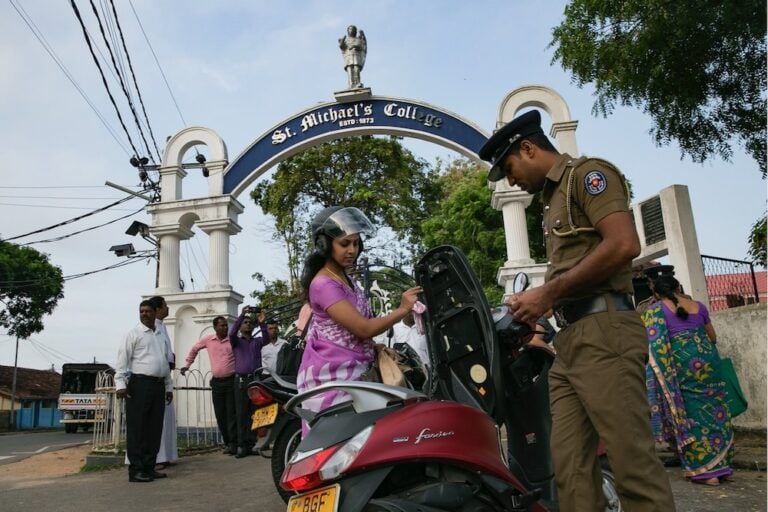(FMM/IFEX) – The following is a 20 September 2006 FMM press release: SC judgment on ICCPR regrettable FMM registers its alarm and dismay at the recent judgment of the Supreme Court in the Nallaratanam Singarasa case. In this case, the petitioner sought to have his conviction, based upon a confession, reviewed / revised by the […]
(FMM/IFEX) – The following is a 20 September 2006 FMM press release:
SC judgment on ICCPR regrettable
FMM registers its alarm and dismay at the recent judgment of the Supreme Court in the Nallaratanam Singarasa case. In this case, the petitioner sought to have his conviction, based upon a confession, reviewed / revised by the Supreme Court in the light of the views expressed by the UN Human Rights Committee on his communication with the Committee. He was exercising his rights under the International Covenant on Civil and Political Rights (ICCPR), to which Sri Lanka acceded in 1980, and its Optional Protocol, to which Sri Lanka acceded in 1997.
In its judgment, the Supreme Court did not merely dismiss his application, but went on to make a fundamental pronouncement which said that the ICCPR had no legal effect in respect of Sri Lankan citizens, and that the Optional Protocol was unconstitutional.
The court stated that Sri Lanka, like the U.K., follows the “dualist theory” that recognises a distinction between international and municipal law. Therefore, international treaties entered into by the President or the Government of Sri Lanka have to be implemented by legislation to have internal effect. The Court also declared that the President had no power to enter into a treaty or accede to a covenant, if the contents of these are inconsistent with the Constitution or written law.
It held that the accession to the Optional Protocol by the President, and the subsequent declaration by the President of Sri Lanka in 1997 that the Government had acceded to the Optional Protocol, were invalid and had no basis in law. It also held that the conferment of a right on an individual to address a communication to the Human Rights Committee amounted to a conferment of a public law right which was a purported exercise of legislative power and therefore was within the realm of Parliament and the people in a referendum. Furthermore, the Court held that the recognition of the power of the Human Rights Committee to receive and consider such a communication was a purported conferment of judicial power on the Human Rights Committee in Geneva. According to the Court, these two features violated Articles 3 and 4 of the Sri Lankan Constitution, which places sovereignty in the people.
Civil society and media circles in Sri Lanka have been taken aback by the far reaching consequences of this judgment – in effect, withdrawing Sri Lanka from an important international human rights regime that is universally accepted by democracies worldwide – at a time when Sri Lanka faces a grave humanitarian crisis and a chilling human rights environment.
The ICCPR and the Optional Protocol were key protections for Sri Lankan journalists operating in the less-than-satisfactory working environment of the recent past. Indeed, the Editor of the Sinhala language newspaper The Ravaya had recourse to the Human Rights Committee when the law of criminal defamation was used against him in a manner designed to stifle his journalistic activities.
From the perspective of the protection of freedom of expression and the media in Sri Lanka, this judgment is a regrettable and regressive step, and the FMM strongly calls upon the Government of Sri Lanka to take immediate remedial measures.


